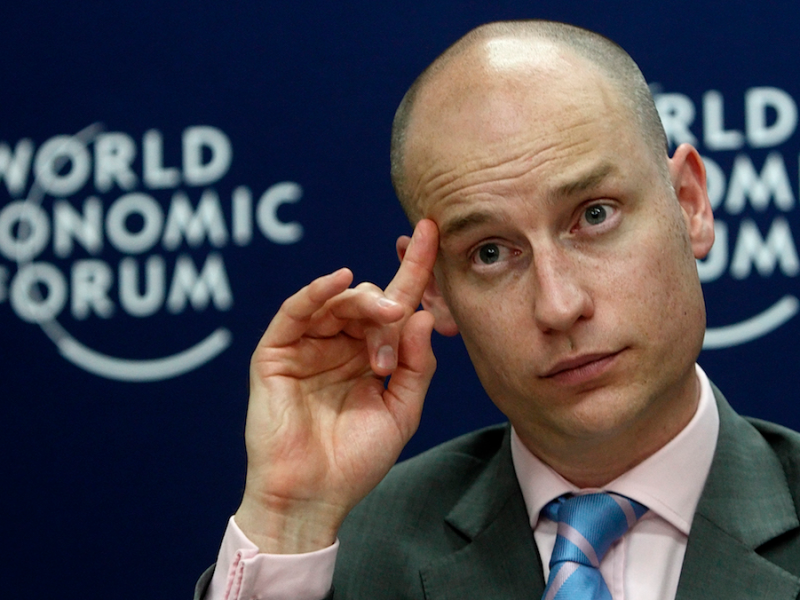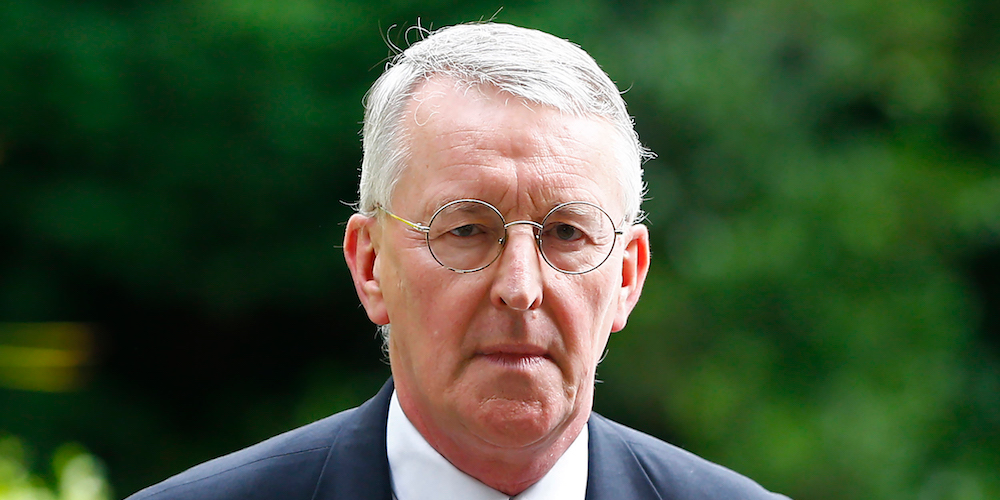- Theresa May should keep Britain inside the European single market if she fails in negotiations, MPs have said.
- The influential Brexit committee has set the UK government 15 tests to pass in negotiations on Britain’s future relationship with the European Union.
- If a deal is unable to pass these tests, then Britain should use the Norway model as its backstop option.
- The Norway model would give Britain full access to the single market and limit the economic damage of Brexit.
LONDON – The UK Parliament’s Brexit committee has today urged Theresa May to use a soft Brexit often described as the “Norway model” as her fall-back if she fails to achieve her goals in negotiations with the European Union.
The Exiting The European Union Committee – led by Labour MP Hilary Benn – has produced a report titled The Future UK-EU relationship, which sets out targets Prime Minister May must meet in the next phase of Brexit talks.
These tests include maintaining an invisible border on the island of Ireland, trade between the UK and EU continuing as it does now with no additional costs, and full participation in several European agencies.
The tests set a "high bar," Benn has said today, but are based on pledges both May and Brexit Secretary David Davis have made to deliver a future relationship which will be "at least as good as what we have now," he added.
If May fails to deliver the deal she has promised, the report says, then she should strongly consider keeping Britain fully aligned with the single market through what is often described as the "Norway model" of Brexit.
"Should negotiations on a 'deep and special partnership' not prove successful, we consider that EFTA/EEA membership remains an alternative which would have the advantage of continuity of access for UK services and could also be negotiated relatively quickly," the report says.
Norway is not an EU member but has full single market access as a member of the European Economic Area. The EEA consists of all EU member states plus Norway, Liechtenstein and Iceland, who are all members of the European Free Trade Association.
Leading Europhile MPs like Labour's Chuka Umunna and Conservative Anna Soubry advocate this option as it would keep Britain closely wedded to EU markets. The government's own Brexit impact assessment shows that the Norway option would be the least damaging form of Brexit in terms of economic harm.
Here are the tests the Brexit committee has set for May. Many of them have already been rejected by the EU on the grounds that they are impossible as long Britain outside the single market and customs union.
- No physical infrastructure on the border between Northern Ireland and Ireland.
- The future relationship must replicate current UK-EU cooperation on fighting crime and terrorism.
- It must also allow Britain to participate fully in all EU security cooperation.
- No tariffs on goods traded between the UK and EU.
- No new border checks on goods traded.
- UK financial services continue to sell to operate in EU markets as they do now.
- No impediments to the free flow of data between the UK and EU.
- No post-Brexit immigration system should deprive British sectors of migrant workers they need.
- The UK should participate fully in several agencies, including the European Medicines Agency, Euratom, European Chemicals Agency.
- It should also stay in programmes like Horizon 2020, the Erasmus+ scheme, and the Galileo project.
- Reciprocal access to fishing waters but with a fairer allocation for the UK fishing industry.
The Committee - which is made up of a cross-party group of MPs - was divided over the report's recommendations.
Brexiteers on the committee including Jacob Rees-Mogg voted against calling for an EFTA / EEA-based backstop option - but were defeated by ten votes to six.
"The High Priests of Remain on the select committee voted through another report seeking to thwart Brexit by stealth," Rees-Mogg told Politico on Tuesday evening.
Committee member and Labour MP Stephen Kinnock said the report made clear that the Norway option "is the only one that would come close to doing the job" of delivering the Brexit Britain needs.
"We need to see the government ditch the dogma, and get realistic," he told BI.
"I have been arguing for an EFTA / EEA-based Brexit since the autumn of 2016, but the government has refused to listen, and as a result we are heading for a Canada-style Free Trade Agreement.
"But a Canada-style deal is about as much use as a chocolate teapot as it offers almost nothing on services, and even less in terms of resolving the Irish border."
He added: "I truly hope that the conclusions of this report will lend weight to my arguments, and that the government will finally wake up and see sense. There is still time to change course, before the crucial October vote.

"In order to construct the house in which we wish to live we must first and foremost design and build the foundations. And, as the Committee has made clear today, those foundations should be EFTA / EEA."
Advocates of the Norway option argue it would satisfy demands of Leave voters as Britain would be able to maintain full access to EU markets - including in services, which accounts for 80% of Britain's economy - without being signed up to controversial EU policies in fishing and agriculture.
Critics of this model say that although it does not require adherence to the European Court of Justice, it would tie Britain to a new set of foreign judges, who sit in the Luxembourg-based EFTA Court. Britain would also have a reduced say in shaping market regulations, making it a "rule-taker" to Europe, those against it say.

